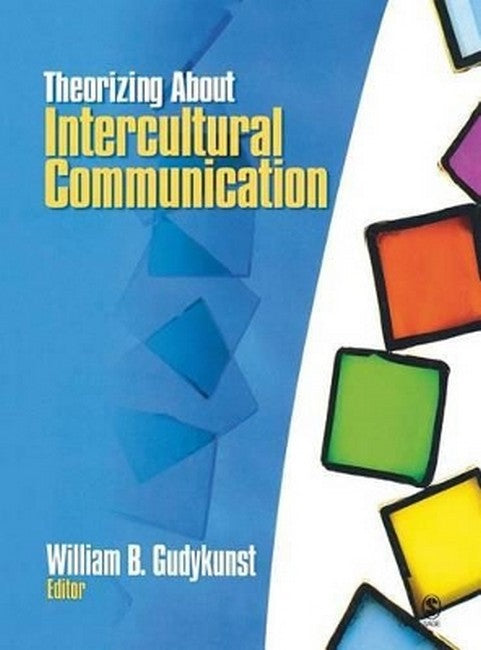William B. Gudykunst (Ph.D., Minnesota, 1977) is Professor of Speech Communication at the College of Communications, California State University, Fullerton. Bill has written and edited numerous works for SAGE, including the Handbook of Intercultural and International Communication, 2/e, and Bridging Differences: Effective Intergroup Communication, 3/e as well as the best-selling introductory undergraduate texts Building Bridges: Interpersonal Skills for a Changing World (Houghton Mifflin) and Communicating with Strangers: An Approach to Intercultural Communication, 3/e (McGraw-Hill). He is extremely well known in the discipline and is one of its most prolific writers/scholars in the areas of intercultural communication and human communication theory.
Request Academic Copy
Please copy the ISBN for submitting review copy form
Description
Preface - William B. Gudykunst Part I: Introduction Chapter 1: Theorizing about Intercultural Communication: An Introduction - William B. Gudykunst, Carmen M. Lee, Tsukasa Nishida, and Naoto Ogawa Part II: Theories of Communication Incorporating Culture Chapter 2: The Coordinated Management of Meaning (CMM) - W. Barnett Pearce Chapter 3: Speech Codes Theory: Restatement, Revisions, and Response to Criticisms - Gerry Philipsen, Lisa Coutu, and Patricia Covarrubias Part III: Theories Focusing on Cross-Cultural Variability in Communication Chapter 4: The Matrix of Face: An Updated Face-Negotiation Theory - Stella Ting-Toomey Chapter 5: Culture-Based Conversational Constraints Theory: Individual- and Culture-Level Analyses - Min-Sun Kim Part IV: Theories Focusing on Adaptations in Interactions Chapter 6: Communication Accomodation Theory: A Look Back and a Look Ahead - Cindy Gallois, Tanya Ogay, and Howard Giles Chapter 7: Cross-Cultural and Intercultural Applications of Expectations Violations Theory and Interaction Adaptation Theory - Judee K. Burgoon and Amy Ebesu Hubbard Chapter 8: From the Margins to the Center: Utilizing Co-Cultural Theory in Diverse Contexts - Mark P. Orbe and Regina E. Spellers Part V: Theories Focusing on Identity Chapter 9: Identity Management Theory: Facework in Intercultural Relationships - Tadasu Todd Imahori and William R. Cupach Chapter 10: Identity Negotiation Perspective: A Theoretical Framework - Stella Ting-Toomey Chapter 11: Theorizing Cultural Identifications: Critical Updates and Continuing Evolution - Mary Jane Collier Chapter 12: A Communication Theory of Identity: Development, Theoretical Perspective, and Future Directions - Michael L. Hecht, Jennifer R. Warren, Eura Jung, and Janice L. Krieger Part VI: Theories Focusing on Effective Communication & Decisions Chapter 13: An Anxiety/Uncertainty Management (AUM) Theory of Effective Communication - William B. Gudykunst Chapter 14: Association and Dissociation: A Contextual Theory of Interethnic Communication - Young Yun Kim Chapter 15: Effective Intercultural Work Group Communication Theory - John Oetzel Part VII: Theories Focusing on Adjustment and Acculturation Chapter 16: Adapting to a New Culture: An Integrative Communication Theory - Young Yun Kim Chapter 17: Cultural Schema Theory - Hiroko Nishida Chapter 18: An Anxiety/Uncertainty Management (AUM) Theory of Sojourner Adjustment - William B. Gudykunst
"Each chapter takes on the issue at hand with a considerable degree of rigor that incorporates extensive literature review, theoretical backgrounds, and detailed explanations of the development of each theoretical perspective." -International Criminal Justice Review -- Adrian Holiday * International Criminal Justice Review *

